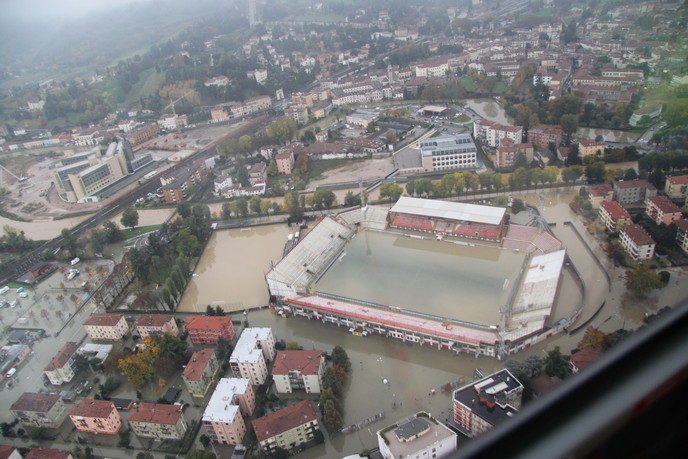Urban adaptation to climate change
Are cities around the globe prepared for climate change? The answer to this question involves multiple areas: infrastructure (water supply and flood protection systems), socio-economic factors (behaviours, attitudes), but also, crucially, institutions (policy and legal frameworks, organisational setups, coordination arrangements). Institutions are comprised of the rights, rules and procedures that influence decision making. They determine to a large extent whether or not cities are adaptive in the face of evolving pressures and shocks under climate change. However, existing institutions are considered to be inadequately prepared for climate change, showing failures in cities across the world exposed to floods, droughts, and other climate impacts. Researchers with the INNOVCITIES study Prof. Huitema and Dr Patterson point out: “Institutional innovation is needed to enable cities to better prepare for climate change impacts and risks. The single most significant way that climate change will be felt by human society is through impacts on water systems.” Academic research demonstrates that failure to sustainably manage water, despite ongoing efforts over decades, is largely due to weaknesses and gaps in governance rather than a lack of technical knowledge. Under the 2015 Paris Agreement, cities play a key role in global climate change responses. There are many reasons for this: cities are more agile than national governments, able to experiment and advance practical solutions and be more responsive to citizens. The focus of this study The study was designed as a web survey with distribution and analysis conducted during 2016-2017. The online format allowed for broad global distribution and targeted cities that are likely to be innovative as well as people likely to be key experts in these cities to provide best information and experience. The survey was made available in 7 languages. Survey replies were received from over 300 experts in 96 cities across all continents. Individual respondents were drawn from multiple sectors (government, research, civil society, industry) to represent a broad spectrum of experts. Key findings The project provided a first-of-its-kind assessment of institutional innovation for urban water adaptation in the cities across the globe. The main finding of this survey is the presence of a relatively vibrant domain of activity regarding the institutional dimensions of urban water adaptation. Types of institutional innovation taking place include changes in policy and legal frameworks (new policies that support adaptation), changes in policy instruments (adaptation planning and communications), changes in organisations (new departments, staff roles), and changes in coordination arrangements (partnerships, knowledge sharing). These efforts appear to be achieving modest progress in addressing various climate-related risks such as urban water supply, flooding, and sanitation risks. It also demonstrates increasing social preparedness and awareness among decision-makers. Authors believe that “Altogether, the findings give grounds for cautious optimism that progress is being made.” However, this conclusion is tentative: more work is needed to analyse the variability between individual cities and regions, and to assess wider effects on urban water governance systems. Next steps The main next step is to conduct further in-depth analysis that disaggregates the data and compares cities across different environmental, social, cultural, economic and political contexts for the deep analyses of institutional innovation. Further key questions to examine are: the extent to which institutional innovation can stimulate not only incremental but more transformative change in urban governance systems; and whether different types of urban governance systems have different potentials to innovate. This will aid in creating urban governance systems that are able to adapt and transform in a changing world.
Keywords
INNOVCITIES, climate change, institutional innovation, urban water adaptation, urban governance system, web survey







